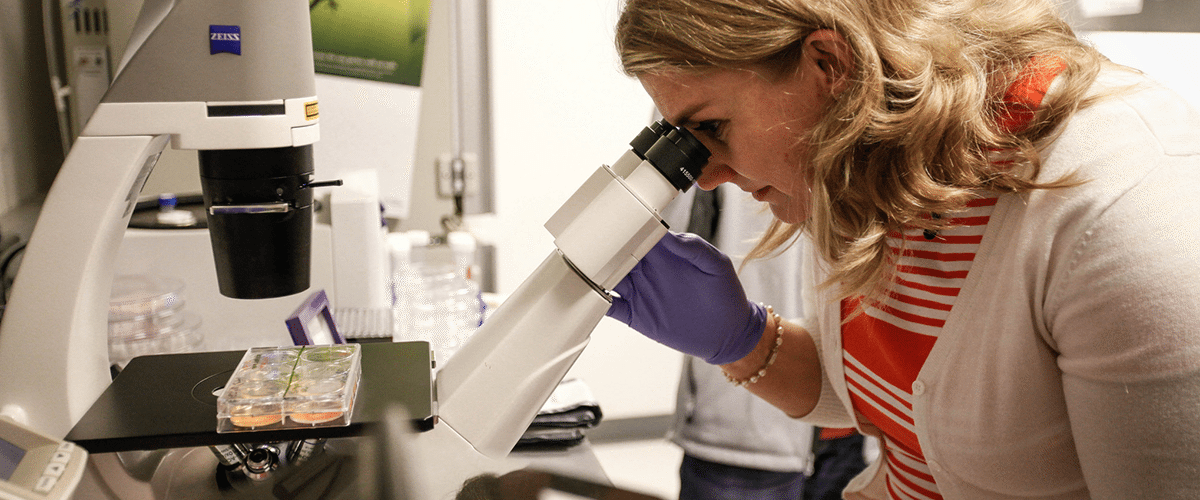[vc_row][vc_column][vc_column_text]
One of the world’s top research universities has announced the launch of a medical marijuana research program that will investigate the therapeutic application of cannabinoids.
Oxford University in England announced last week that it’s teaming up with private equity company Kingsley Capital Partners to investigate the therapeutic potential of cannabis and develop new therapies for acute and chronic conditions. The university’s new biopharmaceutical firm, Oxford Cannabinoid Technologies (OCT), will be given up to $12.36 million backing from Kingsley.
“Cannabinoid research has started to produce exciting biological discoveries and this research program is a timely opportunity to increase our understanding of the role of cannabinoids in health and disease,” said Ahmed Ahmed, professor of gynecological oncology at Oxford, in a statement.
Oxford, one of the world’s top research universities, will use the funding to research the “molecular, cellular and system mechanisms of cannabinoids” and their interactions with the body’s endocannabinoid system in an effort to identify new therapy applications. Pain, cancer, and inflammatory disease are the conditions that will be among the university’s top focuses.
“[The endocannabinoid system] impacts on many aspects of brain function and the way synapses operate,” Dr. Zameel Cader, associate professor in clinical neurosciences at Oxford, told The Independent. “It’s also really important in the way the immune response in governed.”
“We know that’s particularly important for many neurological disorders. It’s really an area of huge untapped potential,” Cader added.[/vc_column_text][/vc_column][/vc_row][vc_row][vc_column][vc_single_image image=”17365″ img_size=”1200×250″ onclick=”custom_link” img_link_target=”_blank” link=”https://www.medicalmarijuanainc.com/overview-of-medical-marijuana-research/”][/vc_column][/vc_row][vc_row][vc_column][vc_column_text]Cader and his colleagues have used stem cells to grow various brain cells and then reproduced disease models for neurological problems, such as Alzheimer’s disease, Parkinson’s disease, migraine, autism, and epilepsy. They then applied cannabinoids to their model system to study their effects.
“Through OCT, we hope our strategic partnership with Oxford will support the development of innovative new therapies to help millions of people around the world,” said Neil Mahapatra, managing partner at Kingsley.
Cannabis, even for medical purposes, is currently illegal in the UK. Calls for legalization have been growing, but the Home Office has said it has no plans for legalization. There is one licensed cannabis-derived drug available to help manage spasms associated with multiple sclerosis (MS).
“The research programme will develop results into innovative therapies designed to help improve the quality of life of millions of patients,” the university said in a statement.
In an interview with The Telegraph, British actor Patrick Stewart voiced public support for Oxford’s new research program. Stewart reportedly uses medical marijuana for arthritis in his hands.
“I enthusiastically support the Oxford University Cannabis Research Plan. This is an important step forward for Britain in a field of research that has for too long been held back by prejudice, fear and ignorance,” Stewart said.
Recently, researchers at Salk Institute in California found evidence that cannabinoids show therapeutic potential for treating dementia. They say that further investigation is necessary and recently complained about the restrictive cannabis laws in the U.S. that hinder research practices.
Later in the year, Oxford and Kingsley also plan to host an International Cannabinoid Biomedicine Conference to encourage greater dialogue among those studying cannabinoids.
Learn about what research has so far discovered about cannabis and its cannabinoids by visiting our education page.[/vc_column_text][/vc_column][/vc_row]






